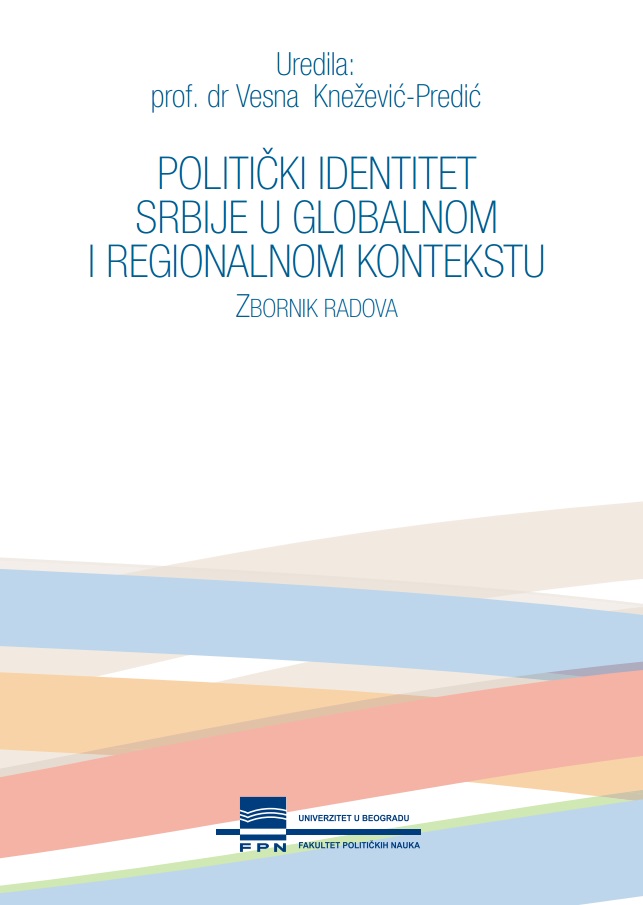
We kindly inform you that, as long as the subject affiliation of our 300.000+ articles is in progress, you might get unsufficient or no results on your third level or second level search. In this case, please broaden your search criteria.

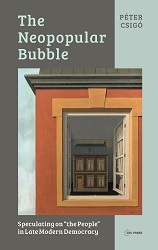
The common critique of media- and ratings-driven politics envisions democracy falling hostage to a popularity contest. By contrast, the following book reconceives politics as a speculative Keynesian beauty contest that alienates itself from the popular audience it ceaselessly targets. Political actors unknowingly lean on collective beliefs about the popular expectations they seek to gratify, and thus do not follow popular public opinion as it is, but popular public opinion about popular public opinion.This book unravels how collective discourses on “the popular” have taken the role of intermediary between political elites and electorates. The shift has been driven by the idea of “liquid control:” that postindustrial electorates should be reached through flexibly designed media campaigns based on a complete understanding of their media-immersed lives. Such a complex representation of popular electorates, actors have believed, cannot be secured by rigid bureaucratic parties, but has to be distilled from the collective wisdom of the crowd of consultants, pollsters, journalists and pundits commenting on the political process.The mediatization of political representation has run a strikingly similar trajectory to the marketization of capital allocation in finance: starting from a rejection of bureaucratic control, promising a more “liquid” alternative, attempting to detect a collective wisdom (of/about “the markets” and “the people”), and ending up in self-driven spirals of collective speculation.
More...
Wiktor Woroszylski followed a path characteristic for many Polish intellectuals in the second half of the 20th century: from entanglement in communism to active opposition to it. He was not only a witness but also a participant of many events of key significance for the post-war history who also influenced them.It is a chronicle of a non-conformist group, written down at a time when keeping such records required great courage, and, at the same time, an expressive portrait of that group, strengthened internally by friendship and mutual loyalty, which has finally become a timeless example of freedom.Crowds, people released from jail, the whole group, one can hardly work out, probably more than one hundred people, press, talks about what has happened, and euphoria again. I was not imaginative enough to realize what happened; I treated the whole work of the Workers’ Defence Committee, etc., in the past years more as a way to save our souls and perhaps create some islands of internal freedom but I did not take into account the prospects of social victory on such a scale.
More...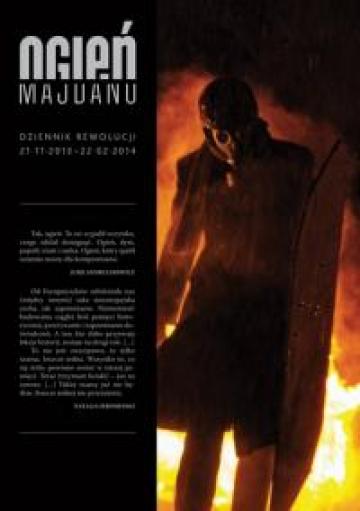
Three months which changed Ukraine written down through the testimonies of individuals: recordings, diaries, memoirs, blogs or Facebook entries. The multitude of experiences makes up a universal story of the phenomenon of Ukrainian breakthrough which started with a peaceful rally in defence of pro-European orientation of the country and ended with the revolution in Kiev and the overthrow of a criminal president. It was the time when the Ukrainians started speaking with a full voice about their right to free choice, about honesty, truth, and dignity, and finally took to the streets in their defence at any cost.
More...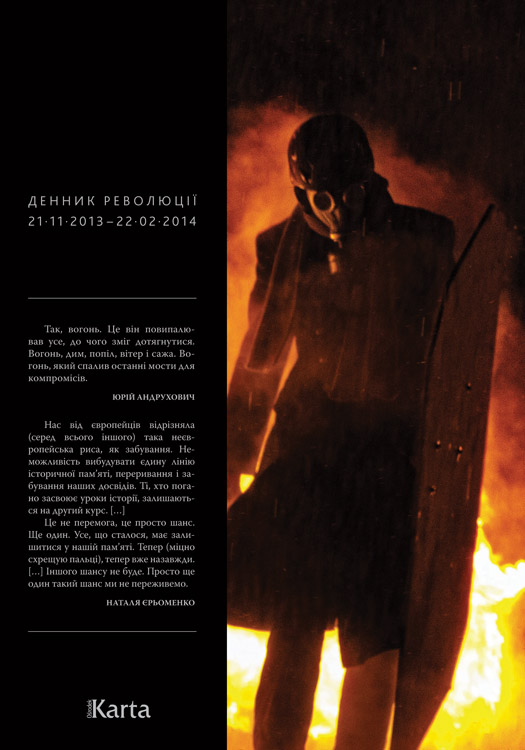
Three months which changed Ukraine written down through the testimonies of individuals: recordings, diaries, memoirs, blogs or Facebook entries. The multitude of experiences makes up a universal story of the phenomenon of Ukrainian breakthrough which started with a peaceful rally in defence of pro-European orientation of the country and ended with the revolution in Kiev and the overthrow of a criminal president. It was the time when the Ukrainians started speaking with a full voice about their right to free choice, about honesty, truth, and dignity, and finally took to the streets in their defence at any cost.
More...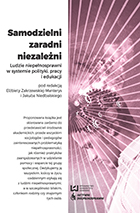
Nieustannie poszukuje się nowych rodzajów oddziaływania rehabilitacyjnego, które mobilizowałyby osoby niepełnosprawne do aktywności, zapewniały partnerską współpracę między osobami niepełnosprawnymi a pełnosprawnymi i ułatwiały przez to proces integracji. Dla powodzenia tych działań niezbędne staje się zaangażowanie instytucji państwowych, organizacji pozarządowych, a także podmiotów działających na zasadach komercyjnych. W niniejszej publikacji chcieliśmy określić, jakie systemowe i strukturalne warunki powinny być spełnione m.in. w sferze pracy, edukacji i szerzej w zakresie polityki społecznej, których rezultatem byłoby stworzenie dogodnych warunków dla realizacji celów i osiągania sukcesów życiowych przez osoby niepełnosprawne. Pragnęliśmy pokazać, jak wielki potencjał może być wykorzystany do szeroko rozumianego przeciwdziałania wykluczeniu i marginalizacji społecznej tej kategorii osób. Publikacja pokazuje, jak wielki potencjał może być wykorzystany do szeroko rozumianego przeciwdziałania wykluczeniu i marginalizacji społecznej osób niepełnosprawnych.
More...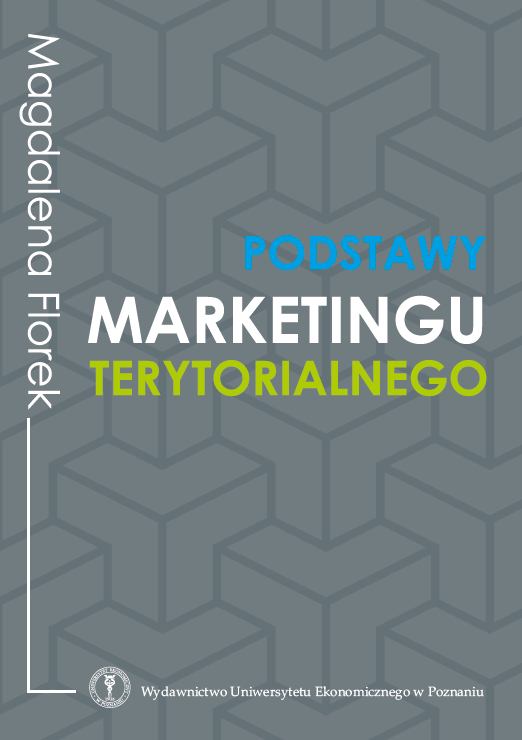
Uniwersalna koncepcja marketingu znajduje zastosowanie nieomal w każdej dziedzinie życia gospodarczego i społecznego. Czerpanie z zasobów wiedzy marketingowej stało się faktem i jednocześnie koniecznością również w przypadku terytoriów. Wyodrębniony w ten sposób marketing terytorialny przybiera w praktyce różne formy: od aplikacji najprostszych narzędzi promocji po skomplikowany proces kreowania marki terytorium. Ich skuteczne i efektywne wykorzystanie do osiągania celów terytoriów wymaga jednak solidnych podstaw teoretycznych i kompleksowego ujęcia. Podręcznik przedstawia, systematyzuje i jednocześnie poszerza podstawową wiedzę z zakresu marketingu terytorialnego, objaśniając pojęcia, zależności, metody, techniki i uwarunkowania z nim związane.
More...
The study Art and Culture of South Africa. In search of artistic identity of South Africa, as influenced by historical transformations – was conceived and written thanks to a study-stay of its author in Johannesburg, South Africa during a four year period between 2001 and 2004.
More...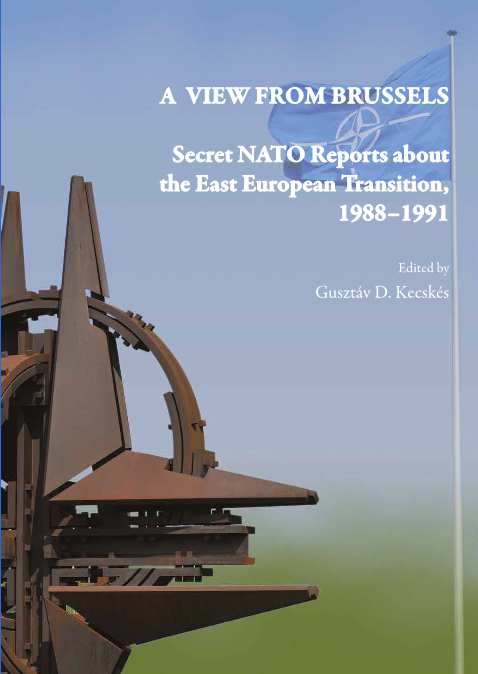
“It is not easy to predict the future course of events, which will depend to a large extent on the overall political situation in the USSR” is the cautious evaluation of the confidential expert report for the North Atlantic Council in October 1989. In 1988‒1991, the relationship was fundamentally transformed between the Western alliance system led by the United States and the East European socialist bloc dominated by the Soviet Union. The military, political, cultural, and ideological confrontation – with the weakening of Moscow and the collapse of its empire – was replaced during a few months by a new type of cooperation of the parties separated previously by the Iron Curtain. The eight reports from the NATO Archives (formerly classified confidential), published in the present volume for the first time in English, illuminate the East European events of these four eventful years from the perspective of expert advisors of the alliance. How were these dramatic changes in Eastern Europe perceived and interpreted in Brussels?
More...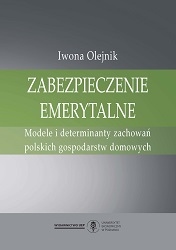
The problem of securing the material needs of individuals who due to their advanced age have a limited opportunity to acquire incomes which would allow them to satisfy these needs is a valid and vital one. Nowadays, almost in all developed countries, the number of people who have finished or will soon finish their professional career due to their advanced age is growing. For this reason, state pensions systems become increasingly financially inefficient. This inefficiency determines the necessity to introduce changes in the structure of the incomes acquired when retired – decreasing the dominance of the benefits received from the state institutions and increasing the share of funds coming from private financing. It is difficult to precisely determine what part of pensions provision should be fulfilled by individual voluntary savings and other methods of providing for old age. It is beyond doubt that too low savings may result in the deterioration of the quality of life when retired (if old age pensions received from the state system also prove insufficient). It is anticipated that a considerable percentage of the employed population does not or will not be in possession of sufficient savings – acquired both from the public system and set aside individually – to provide for retirement. Moreover, economic and social changes, particularly those occurring in the labour market, the improvement of the quality of life, economic emigration, but also the changes occurring in the models of family and legal regulations in the pension systems contribute to the changes in the attitudes and behaviour of households as regards to their choices. The above mentioned monograph focuses on the behaviour of households with regard to providing for their members' future retirement. The main subject is the behaviour of households in the period of accumulation of pension capital, i.e. in the first stage of the so-called risk of ageing. This stage finishes with reaching the retirement age, which is connected with losing one's incomes achieved so far from performed work. Minimizing this loss requires transferring a part of one's consumption from the period of being professionally active (by means of accumulating savings) to the period of old age in the future. The extensive knowledge about the behaviour of various groups may enable better social policy actions and creating pension products tailored to the needs of households. Therefore, the main aim of the paper was to build a model of attitudes and behaviour of households regarding financial security when retired. Taking into consideration the multifaceted nature of the research issues, an attempt was made at creating a whole model of the attitudes of households towards providing for old age. The construction of the model of the attitudes of households towards providing for old age was possible thanks to using the exploratory and confirmatory factor analysis. This model consists of 4 constructs: the belief that additional pension provision is necessary, knowledge, securing one's family and expectation towards life when retired.
More...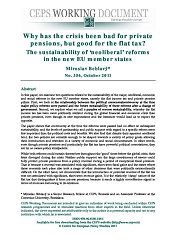
In this paper, we examine two questions related to the sustainability of the major, neoliberal, economic and social reforms in the new EU member states, namely the flat income tax and private pension pillars. First, we look at the relationship between the political consensus/controversy at the time major policy reforms were passed and the future sustainability of these reforms after a change of government. Second, we explore what we call a paradox of reverse sustainability, where by the flat income tax has been more politically resilient during the global financial and economic crisis than private pensions, even though ex ante expectations and the literature would lead us to expect the opposite. The paper shows that controversy at the time the reforms were passed had no effect on subsequent sustainability, and the levels of partisanship and public support with regard to a specific reform seemless important than the political costs and benefits. We also find that despite their apparent neoliberalbent, the two policies are versatile enough to be shaped towards a variety of policy goals, allowing their introduction and retention in a variety of economic and social circumstances. In other words, even though private pensions and particularly the flat tax have powerful political connotations, they are by no means policy strait jackets.
More...
Der vorliegende Band analysiert Umstände und Folgen der kroatischen Arbeitsmigration nach Westdeutschland in den 60er und 70er Jahren des 20. Jahrhunderts. Bekannt unter dem Begriff Gastarbeitermigration wurde diese Wanderung in der ersten Zeit als vorläufige Beschäftigung der vornehmlich jüngeren männlichen Population mit niedriger Berufsqualifikation realisiert, in der Folge entwickelte sie sich aber zu einem längerfristigen Verbleib sowie Nachzug ganzer Familien nach Deutschland. Das Buch enthält Kapitel über Migranten und ihre Nachkommen, die sogenannte transnationale Generation in Deutschland. Die Grundlage für das Buch lieferten die mit Kroaten in Deutschland geführten Gespräche in der Zeitspanne von 2002 bis 2017. Dabei werden Schlüsselthemen und Metaphern erörtert, die aus dem Leben der Kroaten im Aufnahmeland (damaliges Westdeutschland) und dem Herkunftsland (damaliges Jugoslawien, heute Kroatien und Bosnien und Herzegowina) entspringen, aber auch jene, die sich aus dem transnationalen sozialen, jenseits der staatlichen Grenzen geschaffenen Raum herleiten.
More...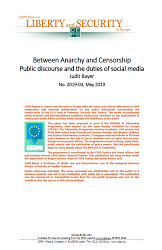
Social media platforms have become powerful enough to cause perceptible effects in societies on a global scale. They facilitate public discussion, and they work with excessive amounts of personal data – both activities affecting human rights and the rule of law. This specific service requires attention from the regulator: according to this paper, a new legal category should be created with clear definitions, and a firm delineation of platforms’ rights and responsibilities. Social media companies should not become responsible for third-party content, as this would lead to over-censorship, but they should have the obligation to create and maintain safe and secure platforms, on which human rights and the rule of law are respected.
More...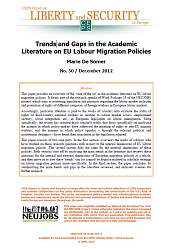
This paper provides an overview of the ‘state of the art’ in the academic literature on EU labour migration policies. It forms part of the research agenda of Work Package 18 of the NEUJOBS project, which aims at reviewing legislation and practices regarding the labour market inclusionand protection of rights of different categories of foreign workers in European labour markets. Accordingly, particular attention is paid to the works of scholars who evaluate the status of rights of third-country national workers in relation to labour market access, employment security, social integration, etc., in European legislation on labour immigration. More specifically, the review has selected those scholarly works that focus specifically on analysingthe manner in which policy-makers have addressed the granting of rights to non-EU migrant workers, and the manner in which policy agendas – through the relevant political and institutional dynamics – have found their translation in the legislation adopted.
More...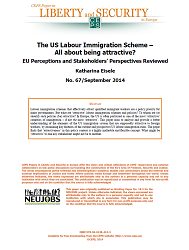
Labour immigration schemes that effectively attract qualified immigrant workers are a policy priority for many governments. But what are ‘attractive’ labour immigration schemes and policies? To whom are (or should) such policies (be) attractive? In Europe, the US is often portrayed as one of the most ‘attractive’ countries of immigration – if not the most ‘attractive’. This paper aims to analyse and provide a better understanding of the elements of the US immigration system that are supposedly attractive to foreign workers, by examining key features of the current and prospective US labour immigration rules. The paper finds that ‘attractiveness’ in this policy context is a highly malleable and flexible concept: What might be ‘attractive’ to one key stakeholder might not be to another.
More...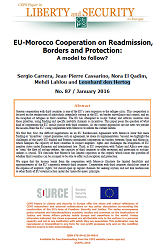
Greater cooperation with third countries is one of the EU’s core responses to the refugee crisis. This cooperation is focused on the read mission of individuals irregularly staying in the EU, on border surveillance and control, and on the reception of refugees in third countries. The EU has attempted to co-opt Turkey and African countries into these priorities, using funding and specific mobility channels as incentives. This paper poses the question of what kind of cooperation the EU should pursue with third countries. As the current approaches are not new, we present the lessons from the EU’s long cooperation with Morocco to inform the current debate. We find that, first, the difficult negotiations on an EU Readmission Agreement with Morocco show that more funding or ‘incentives’ cannot guarantee such an agreement, let alone its implementation. Second, we highlight the challenges of the partly EU-funded and Frontex-coordinated cooperation on borders between Spain and Morocco, which hampers the capacity of third countries to respect migrants’ rights and challenges the obligations of EU member states under European and international law. Third, as EU cooperation with Turkey and Africa now aims to ‘stem’ the flow of asylum-seekers, the capacity of third countries to offer reception and protection to asylum-seekers is crucial. We conclude that Morocco has limited capacities in this regard, which raises the question of whether third countries can be assumed to be able to offer such reception and protection.
More...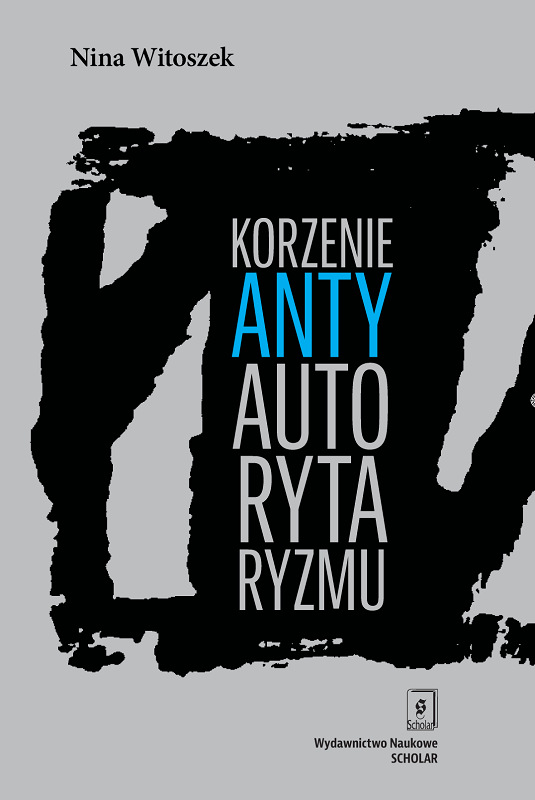
Jedną z najważniejszych, niedokończonych rewolucji we współczesnym świecie jest rewolucja godności: walka jednostek i grup o uznanie i respekt – niezależnie od religii, narodowości czy orientacji seksualnej. Autorka dowodzi, że rewolucja godności jest często dziełem małych, odważnych grup „humanistycznych renegatów”, od których zależy postęp moralny. Na nowo odczytuje polską rewolucję godności z lat 1976–1989: okres wyjątkowego „drugiego renesansu” w Europie, powrotu do ideałów godności, altruizmu, odwagi i współczucia. Pyta, jak wcześniejsze sposoby walki z autorytaryzmem mają się do XXI-wiecznych fejsbukowych rewolucji. Porównuje je z siłą przepływów cyfrowych, które napędzają współczesne „sieci oburzenia i nadziei”. Pokazuje, że rewolucja godności ma swego mrocznego sobowtóra: populizm, który obiecuje przywrócenie narodowej dumy i wielkości za cenę nowego autorytarnego zniewolenia.„W czasach, gdy pojęcie populizmu nabrało tak negatywnych konotacji, dobrze jest przypomnieć sobie jego emancypacyjne, postępowe oblicze. To książka, która mogłaby dać nadzieję George'owi Orwellowi”.Roger Griffin, prof. historii i politologii, Oxford Brookes University
More...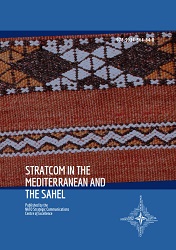
Seas and deserts are uniting and dividing elements of human life on this planet. The Mediterranean region, North Africa, and the Sahel have witnessed a long history of historical cycles of cooperation and conflict. Since the Arab Spring and the fall of Qaddafi in Libya in 2011, the region has received increasing international attention given the combination of violent conflict and unprecedented migration flows at Europe’s doorstep. This paper aims to analyse the scope and nature of the impact of security challenges in this region upon strategic communications, mainly for NATO and its member states. This study is based on the analysis of global and regional open sources regarding four key issues: terrorism, migration, illicit trafficking, and great power competition. These have been identified as macro areas that affect the entire region and are deeply influenced by information. The conclusions provide succinct recommendations on how to conduct an informed and successful STRATCOM campaign in the region.
More...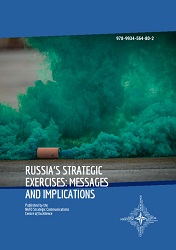
In this report, several of Russia’s strategic military exercises come under the spotlight to explore the messages and implications of these activities. A nation’s military exercises, especially strategic, are a form of important communication to a wide array of audiences including adversaries, allies, partners and the nation’s own population. This type of communication provides a better understanding of the scope and scale of a country’s military capabilities and readiness. It also provides valuable insights into a nation’s interests, operational art and strategic thinking. Military exercises support political, military and geopolitical intents as well as demonstrating capabilities and challenging our ways of thinking beyond the current framework of traditional military ‘modus operandi’.
More...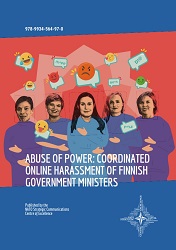
This report is an explorative analysis of abusive messages targeting Finnish ministers on the social media platform Twitter. The purpose of this study is to understand the scope of politically motivated abusive language on Finnish Twitter, and to determine if, and to what extent, it is perpetrated by inauthentic accounts. To this end, we developed a mixed methodology, combining AI-driven quantitative visualisations of the networks delivering messages of abuse with a qualitative analysis of the messages in order to understand the themes and triggers of abusive activity. We collected Twitter data between 12 March and 27 July 2020, a period spanning the state of emergency declared in response to the COVID-19 pandemic. This report is informed by the findings of three recent Finnish studies, one of which investigated the extent and effects of online hate speech against politicians while the other two studied the use of bots to influence political discourse during the 2019 Finnish parliamentary elections.
More...